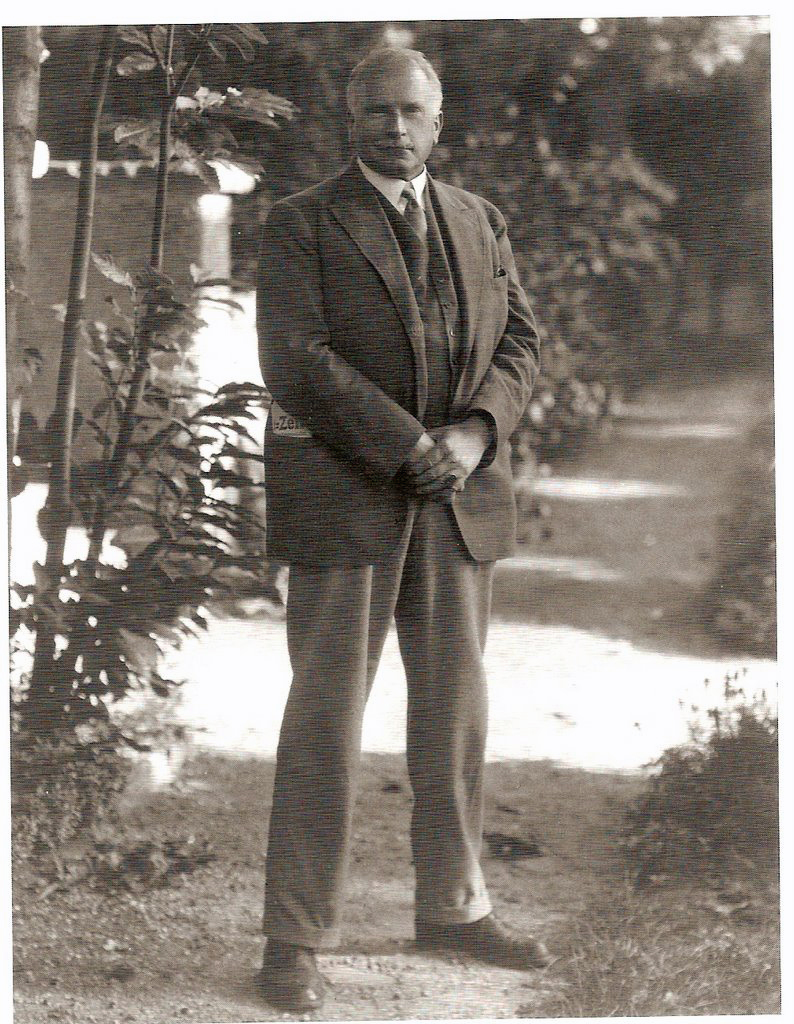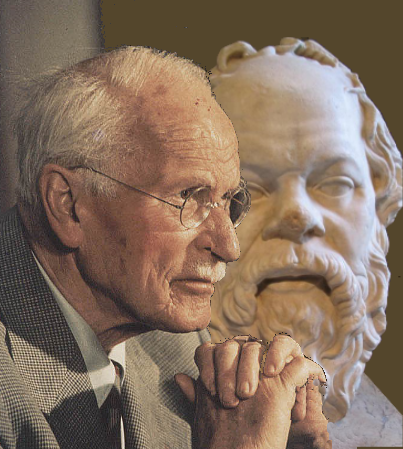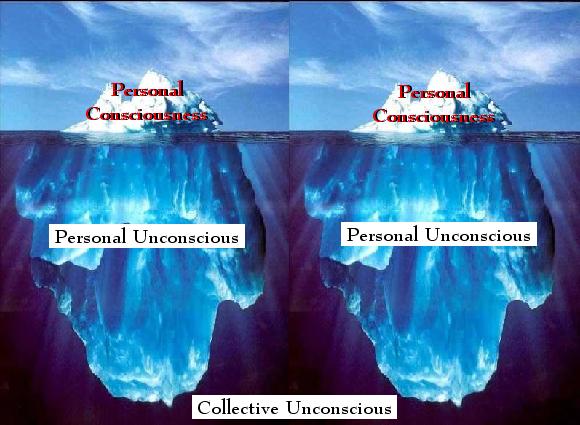|
The concept of the archetype ... is derived from the repeated
observation that, for instance, the myths and fairy tales of world literature
contain definite motifs which crop up everywhere. We meet these same motifs in
the fantasies, dreams, deliria, and delusions of individuals living today. These
typical images and associations are what I call archetypal ideas. The more vivid
they are, the more they will be colored by particularly strong feeling-tones
... They impress, influence, and fascinate us. They have their origin in the
archetype, which in itself is an irrepresentable, unconscious, pre-existent form
that seems to be part of the inherited structure of the psyche and can therefore
manifest itself spontaneously anywhere, at any time. Because of its instinctual
nature, the archetype underlies the feeling-toned complexes and shares their
autonomy.
Carl G. Jung, Collected Works, Volume 10, Paragraph 847
|
 |
 |
 |
| Jung as a Young Man |
Jung and Socrates |
Jung's Iceberg Model of Human
Consciousness |
 |
Jung Is One of the Greatest Alchemists of the 20th Century.
|
 |
His Disciples Called Him
the "Hexenmeister of Zurich."
|
 |
Jung's Iceberg Model of Human Consciousness -
Tripartite Scheme Consisting of Ego, Personal Unconscious and the
Collective Unconscious. |
 |
Jung's Theory of Archetypes
- "The Archetype Is a Symbolic Formula Which
Always Begins to Function When There Are No Conscious Ideas Present,
or When Conscious Ideas Are Inhibited for Internal or External
Reasons." |
 |
Archetypes Frequently Manifest Themselves in Our
Dreams. |
 |
"Archetypes Create Myths, Religions, and
Philosophical Ideas That Influence and Set Their Stamp on Whole
Nations and Epochs." |
 |
Myths Arise From the Collective Unconscious and
Consist of Archetypes. "In Fact, the Whole of Mythology Could Be
Taken As a Sort of Projection of the Collective Unconscious." |
 |
Many Students of Mythology and Religion Such As
Joseph Campbell (1904-1987) and Mircea
Eliade (1907-1986) Have Adapted Jung's
Theory of Archetypes into Their Own Theories.
|
|